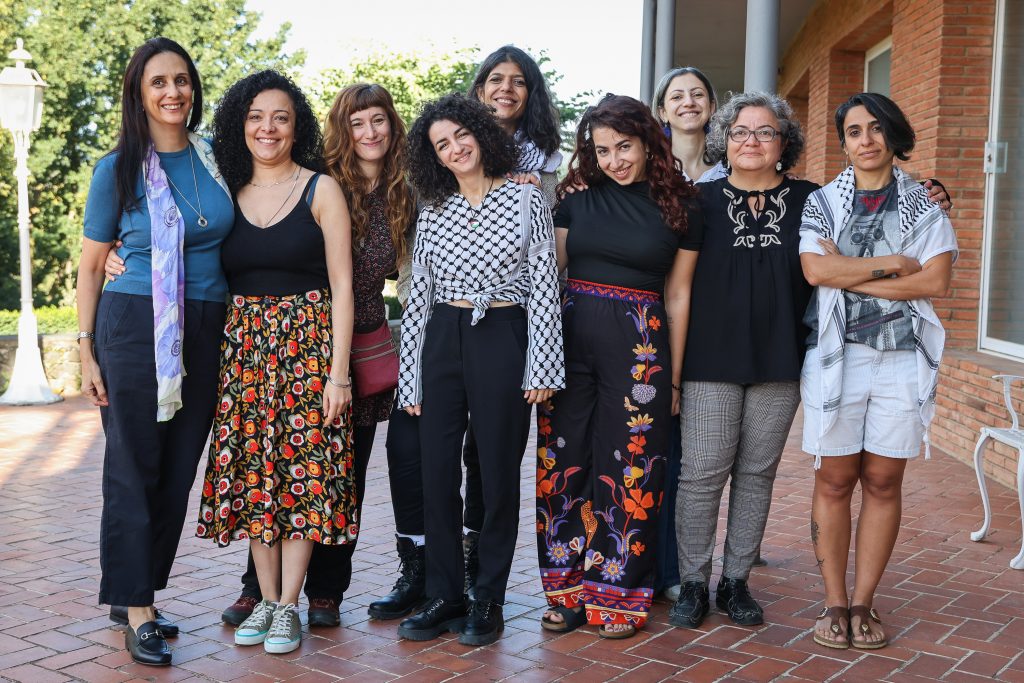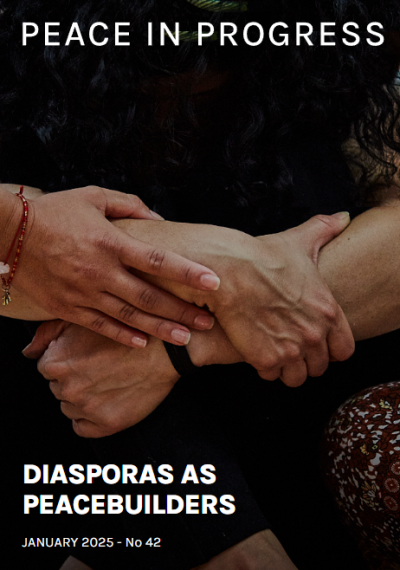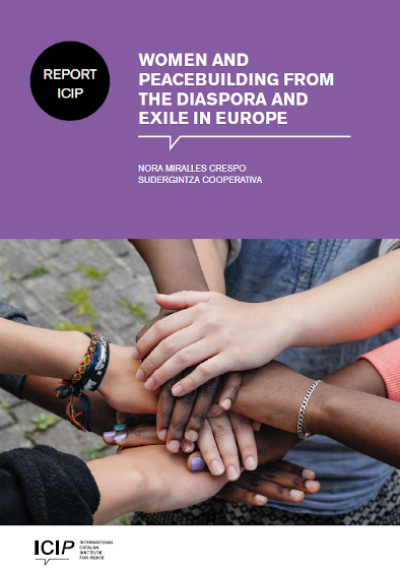Diasporas as Peacebuilders
The rise in armed conflicts and the proliferation of diverse forms of violence underscores the urgent need for innovation in peacebuilding analysis and responses. Clearly, new actors and tools must complement the efforts of governments, the United Nations, and civil society organizations. In this context, it is crucial to recognize diasporas as key agents of peacebuilding, amplify their visibility, and address the institutional, social, and economic challenges that refugees, exiles, and migrants face in rebuilding their lives with dignity and full respect for human rights.
Placing diasporas at the heart of peacebuilding efforts requires understanding their shared struggles and unique experiences. This approach demands a respectful acknowledgement of political subjectivities, ensuring that the distinct realities of each group and country are considered. At the same time, fostering peace also necessitates transforming host societies—combating racism, dismantling perceptions of the “other” as an adversary, and promoting inclusive coexistence.
The path to peace through diasporas is forged by strengthening their connections to their places of origin and crafting narratives that emphasize the possibilities of mutual understanding and harmonious coexistence.
Related Publications
Mediterranean Women, Weaving Resilience: The Value of Peace
In September 2024, ICIP and the Faberllull Residence in Olot gathered women from Palestine, Syria, and Lebanon to reflect on peace through their personal experiences.
The participants came from artistic, academic, and journalistic backgrounds. While some continue to live in the Middle East, others have settled in Catalonia. They represent different generations and have experienced diverse political and social contexts. Yet, they share a common thread—the profound impact of war and conflict on their lives and countries.
The residency was designed to offer a healing experience, fostering meaningful connections and providing a safe space where the women could share their anxieties and grief while listening to and supporting one another. Through carefully structured dynamics, the program encouraged dialogue, trust-building, and collective reflection.
The participants included:
- Nadia Harhash (Palestine) – Writer
- Rehab Mouna Chaker (Netherlands-Syria) – Writer and translator
- Nadine Feghaly (Lebanon) – Illustrator and art therapist
- Zeina Shahla (Syria) – Journalist and researcher
- Yara Harake (Lebanon) – Communications, media, and events coordinator
- Salam Alaridi (Syria) – Project management advisor at Musawa-Women’s Study Center
- Jana Bou Matar (Lebanon) – Theater creator

Exiles and Distances. Stories of Colombian Women
The book Exilios y lejanías. Relatos de mujeres colombianas (Exiles and Distances: Stories of Colombian Women) is a collection of stories written and illustrated by Colombian women living far from their homeland.
Forced to leave Colombia due to the armed conflict, these women have resettled in Germany, Canada, Denmark, Spain, Italy, Norway, and Sweden. Despite their diverse ages and professions, they share a deep commitment to peacebuilding and gender equality. The book brings together 42 stories, organized thematically, offering a powerful reflection on displacement, resilience, and identity.
In October 2023, the book was presented in Barcelona at an event organized by ICIP, with the support of the Internodal Gender Group in support of the legacy of the Colombian Truth Commission.


